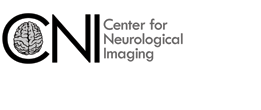Context
The “Structured Planning and Implementation of New Explorations” (SPINE) is a web platform designed the to help researches in the design and management the whole lifecycle of a research experiment involving MRI images and clinical data. SPINE aims to answer scientific questions by providing all the required tools to the scientist, enabling experts, such as radiologist, to integrate their knowledge, computer scientist to insert image processing procedures, and statisticians to input models for the analysis of the results, all in the same place. SPINE can also be seen as a virtual laboratory. This virtual aspect of SPINE enables the use of crowdsourcing of knowledge and by consequence can be used in fields such as teaching environments or citizen-science.
The version of SPINE 1.0 has reach a stable point enabling the creation of multiple projects and experiments, and has been used in various projects for the answering of scientific questions. From the development and use of this version, the development team has identified the need of SPINE for its next version. In addition, we are also developing a tablet application/game for crowdsourcing of image annotations that is connected to the SPINE platform (https://youtu.be/a7qNsmHc3sU). Currently, SPINE 2.0 is in development. We are looking for motivated engineers who like to face and solve new problems providing meaningful advances in the research field.
Objective
SPINE 2.0 is being developed using cutting edge technologies that enables robust and fast development. We are currently using nodejs, hapi server, react, redux, couchdb/mongodb and postgres. The objective of this project is to help in development of workflow management in experiments. We will develop or integrate a workflow engine that gives the needed capabilities for SPINE. In particular we will integrate the definition of Brain Image Data Structure (BIDS – http://bids.neuroimaging.io/ ) for the storage of images, with definitions of algorithms in Boutiques ( http://boutiques.github.io/ ) and a workflow manager such as NyPipe ( http://nipype.readthedocs.io/ ). This integration will require the development of back- and front-end support.
Methodology
- Get familiar with the BIDS, Boutiques, NyPipe and the current development
- Define an integration strategy for the back end
- Develop the corresponding back-end
- Test the development and its integration into SPINE
- Develop the corresponding front-end
Profile
- What skills do you need?
- Programming skills in javascript, node.js, d3.js and React (python is a plus)
- Image processing background (ITK, VTK) is a plus
- What skills you will acquire?
- Improve presentation skills.
- You will be exposed to almost weekly presentation from researchers of groups collaborating with us.
- You will have to present to the group:
- End of the second month: project and objectives
- End of the fourth month: advances
- Final presentation
- Team working
- Expose your ideas within a multidisciplinary team
- Data management
- You will be exposed to different types of data, typically images and clinical data. You will learn the best practices to handle this information.
- Networking
- Being in a multidisciplinary team and linked to research groups all around the world you will be exposed to contacts ….
- What you will learn?
- Brain
- You will learn basic concepts about brain and MRI images
- Coding practices
- Your development has to be integrated in the SPINE platform in order to be used by researchers for the …
Team / environment
- The CNI team involves physicians, computer scientists, and virtual reality specialists. As we collaborate with many groups you will also communicate with statisticians, senior software developers, and researcher from multiple diverse fields.
Contact
- Charles Guttmann, guttmann@bwh.harvard.edu
- Alfredo Morales Pinzon, amoralespinzon@bwh.harvard.edu
- Andrzej Marciniak, amarciniak@bwh.harvard.edu
See also: Project
- Opportunities
- Association of associative, limbic and sensorimotor subcortical structures with fatigue in multiple sclerosis
- Axon-based Parcellation of the Corpus Callosum in Subjects with Multiple Sclerosis
- Context-based morphometry in MRI imaging
- Development of Web Widgets Toolkit for MRI imaging tools
- Development of a New Method to Measure Glymphatic System Dynamics
- Discrimination of fatigue and depression networks in patients with multiple sclerosis
- Front- and Back-end Development for SPINE
- Implementation of manual and smart semi-automatic brain lesion segmentation tools in SPINE
- Multimodal MRI Approach to Investigate the Development of Brain Damage in Age-related Small Vessel Disease
